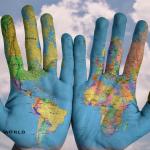John Derbyshire’s now-infamous article from last week’s Taki’s Magazine has pretty thoroughly torpedoed any claim that we live in a post-racist society by saying aloud what every white person knows to keep in our heads. For those of you who haven’t read it, it seems like its purpose is to parody “the talk” black parents describe having to give their kids about life in a world with white people who are predisposed to think less of them. Derbyshire’s mock “talk” proclaims boldly the hideous thoughts that most white people would be ashamed to admit having about things like their fears of large crowds of black people, their annoyance at black state employees who Derbyshire goes ahead and accuses of getting their jobs because of affirmative action, and the anxious, desperate need to acquire a certain quota of “intelligent, well-socialized blacks” in order to defend themselves against charges of prejudice. What first struck me as I read this is what a fearful, pathetic little world Derbyshire and people like him live in. And then my second thought was that I have lived in that same fearful, pathetic little world as a fellow racist. So I thought I’d share a few fragmented memories of my personal history of racism in order to completely subvert Derbyshire’s intentions by turning his mocking, hurtful rant into an opportunity for confession and healing.
I grew up in Houston, Texas at least a dozen blocks inside of Loop 610, so I was always puzzled when I read magazine articles about the neediness of “inner-city” kids because I thought I lived in the inner-city. I went to an elite private school and a mostly white Southern Baptist church, but I grew up thinking that the few black people who I interacted with were automatically the coolest of the cool. I’m not sure why. Maybe because Michael Jackson was big. A kid named Kazi was the only black kid in my grade, and I thought he was awesome. Plus his dad worked at Mission Control! There was a black guy named Ray Whitlow who went to our church. I didn’t know a whole lot about him, but I always ran over to shake his hand (the way black people shake hands!) after the service was over.
The racist aspect of my consciousness when I was a young kid was geographic. There was a bike trail on the bayou near our house. Going one direction was “safe” and the other way went to MacGregor which “wasn’t safe” (because it was one of the black parts of town where incidentally a young Venus and Serena Williams were learning to play tennis about that same time). I also remember thinking it was “less safe” to ride my bike on Dorrington, one block north of Gramercy where I lived, because it had too many black people. I’m not sure how black people were simultaneously the coolest of the cool and not safe, but I have a pretty good feeling that most middle-class white kids who grew up in the eighties share my intuitions.
When I got to be a pre-teen, gangsta rap was just starting out and it became my refuge from the intense bullying I was suffering at school, because I could secretly be a “honkie with attitude.” I still have most of “Straight Outa Compton” memorized. Eazy E was my hero. I loved trying to imitate his voice. All the time though I was terrified that some real black gangsta would catch me listening to rap music and shoot me for being a white poser. When Vanilla Ice came out, I hated him from the beginning because his fake “I come from the streets” (but I’m really from the suburbs) vibe called me out. I resented the white kids who dressed and acted black because I felt like they had a secret knowledge that I could never gain, so the more I encountered white hip-hop kids as a hopelessly dorky kid, the less I wanted to listen to rap music.
Before 9th grade, I moved from Houston to Durham, NC. Within a week of moving to Durham, I heard the word ” !@#$%^&*” used pejoratively by a white person for the first time at my neighbor’s house across the street. After having a miserable time at a private school in 9th grade, I transferred to the public school where I joined the football team and spent half the summer hanging out with mostly black guys. I don’t know how to explain why, but I never felt like I could be friends with them. I think it was because I felt like a poser trying to talk like them, and I didn’t understand their jokes, so I just stayed quiet.
I actually ended up joining a clique of openly racist self-identifying “rednecks” whom I befriended when I went behind the gym to smoke a cigarette. The reason I hung out with them was because they didn’t tell me to go away like the preps did. I don’t think I was ever a true-believer in terms of the racism, but I was definitely a big Rush Limbaugh fan and loved the South and country music because it was “wholesome” (even though I drank whiskey while listening to it). There was one night when we were supposed to have a race-war in the parking lot in front of a bowling alley and supposedly the black people had guns, so one of our guys had brought his 12-gauge, but that ended up being all hype. What really made an impression on me though was when I fell out with the rednecks and they were trying to jump me for a few months, Patrick, the black quarterback of the football team, said, “We’ve got your back, Morgan.” Those words had a huge impact on me.
I ended up becoming best friends with a gay black guy in my chorus class senior year. I also flirted a lot with the black girls with a strange kind of freedom that came from having the thought in my head that they know I can’t be serious because I’m white and they’re black. There was one girl though whom I had a huge crush on but didn’t have the guts to ask her to the prom, because first of all, she would say no, and if she didn’t, what if she wanted to go with “her friends” instead of “my friends” and I was the only white guy in the group, etc.
When I went to college, I organized an evangelism rally called the Lovefest on Valentine’s Day my freshman year. I invited a black preacher to deliver the message because I knew that he would have more credibility with liberal white people than a white preacher, though this is the first time I have ever articulated that thought aloud. After he came to preach, I decided that I was going to bridge the gap between white and black people in Charlottesville, Virginia, by attending his church. I came for a few Sundays and people were very friendly and accepting and I felt like a hero. I don’t remember the exact context, but I wrote an extremely patronizing and arrogant letter to the preacher about my plans for lifting “his people” out of poverty or something equally horrifying that I have repressed out of my memory. The thought of that letter still makes me shudder to this day. I never got a response of course, and I stopped going to his church.
After college, I found myself in a radical left-wing crowd in which most of the energy was focused on all the -isms of identity politics. Since I was used to being told I was a worthless sinner in fundamentalist Christian culture, it was easy to masochistically embrace the role of worthless white-straight-rich-male in radical culture. I tried for a while to pretend like I was “bi-curious” in order to avoid being on the wrong side of all the -isms, but I never was able to convince myself or anybody else.
For most of my twenties, I was immersed in community with either blacks or Latinos or white people who really wanted to hang out with blacks or Latinos. The form that my racism took in this time was that my identity as a progressive white person was legitimated largely based upon my relationships with non-white people. I could never be sure if I was having genuine relationships with them or if I was trying to prove something by being in relationship with them. A black con man in Mexico City actually played my “white guilt” to his advantage in the summer of 2000 by manipulating me into buying his family bus tickets which he later came back to the terminal and cashed out for several hundred dollars.
One of the greatest compliments I’ve ever received was when I was a high school teacher of mostly black kids. A girl named Ieshia whom I had butted heads with early on but grown close to over time actually called me ” !@#$%^&*” in an affectionate note she left on my blackboard, which is about the coolest thing that can happen to a racial-guilt-ridden white high school teacher. As a youth pastor several years later, I had mostly Latino kids. Because of my need for racial self-affirmation, I created all kinds of boundary issues that almost destroyed my family. It’s a different kind of racism when white people use non-white people as trophies in their lives to feel better about themselves, but it’s still racism.
None of this is to say that there wasn’t a lot of good and growth that has happened at various stages in my journey. None of it’s to say I didn’t make incredible friendships that transcended the stupid racial categories my mind never seems to get over making. But I think I will always be a little bit racist. I’m not saying that’s okay, but I don’t think it’s ever something that goes away completely. I’m mostly able to have normal, genuine relationships with black people now and not feel the need to point to myself and say, “See, I have a black friend!” But there was a black guy who I didn’t know on my street within the past month and I looked at him longer than I needed to do and longer than I would have if he had been white. And I know that if I’m driving and there’s a group of urban-looking black guys gathered on the sidewalk, my fingers will probably always instinctively touch the door-lock button even if I stop myself. As a white kid from the eighties, part of me will always see black people as both awesome and unsafe. And I will probably never be able to stop trying to be a black man when I preach.














